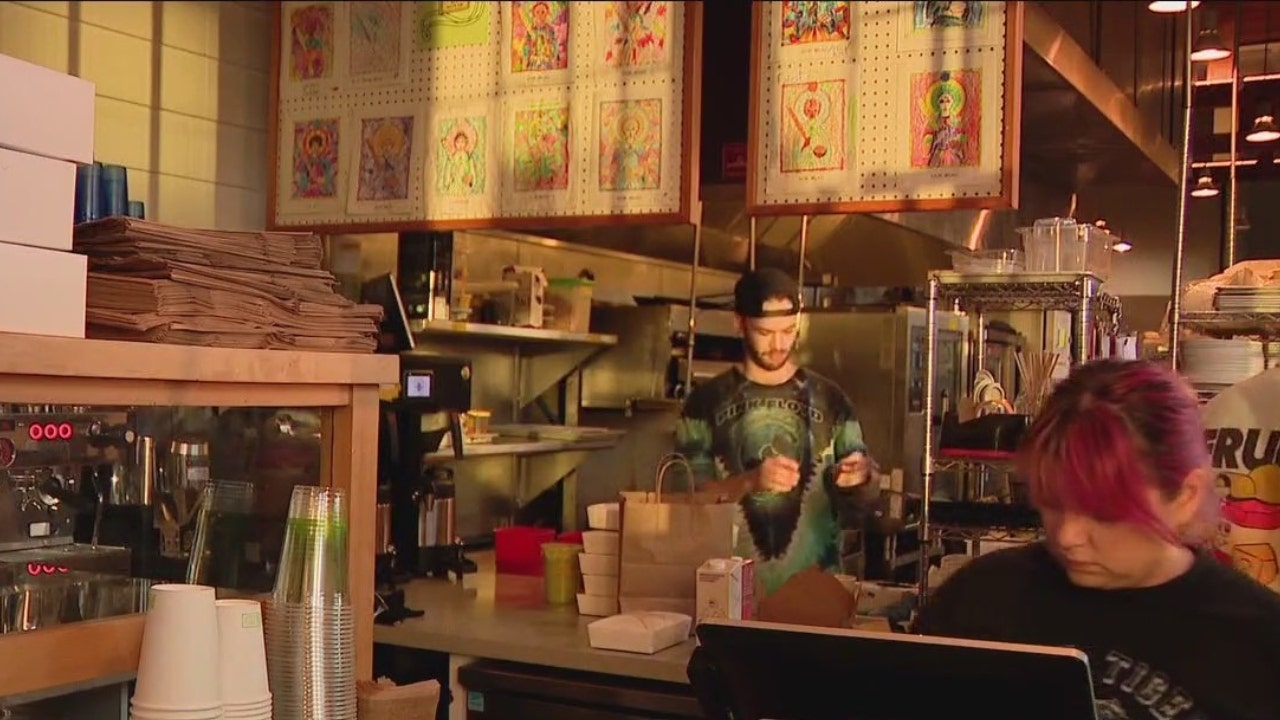
The future of finance, especially global finance, is not on the horizon — it’s happening now. Countries and Institutions that embrace interoperability, real-time compliance, and quantum-resilient security are positioning themselves as leaders of this transformation.
The financial system is in the midst of a monumental shift. Central Bank Digital Currencies (CBDCs) are gaining momentum as governments and regulators aim to modernize monetary systems, while Decentralized Finance (DeFi) continues to challenge conventional financial services with speed, transparency, and decentralization. However, despite their potential, these two forces — along with traditional financial systems — remain disjointed. This fragmentation results in inefficiencies, rising costs, and settlement delays, hindering global financial connectivity. Bridging these worlds is no longer optional — it’s essential to create a faster, more secure, and more inclusive financial future.
The Problems Holding Finance Back
For decades, the global financial system has relied on legacy infrastructure and fragmented regulatory and banking industry frameworks. While it has supported cross-border payments and international trade, it has done so at an exorbitant cost in terms of both time and money. The involvement of global politics has added an additional level as well to an already complex system. The emergence of blockchain-based DeFi platforms introduced new possibilities but failed to solve the underlying issues of scalability and compliance. Meanwhile, CBDCs add a new layer of complexity as central banks look to maintain control while modernizing payments.
The key obstacles are clear:
- Slow and Expensive Payments: Cross-border payments processed through SWIFT are slow and require multiple intermediaries, each adding fees, delays, and points of failure. The type of transfers are limited.
- Disjointed Regulatory Compliance: Payments crossing borders must comply with a patchwork of jurisdictional regulations, including Know Your Customer (KYC) and Anti-Money Laundering (AML) requirements. Current processes are slow, manual, and costly.
- Lack of Interoperability: DeFi platforms, CBDCs, and traditional banking systems all operate on isolated infrastructures, making it difficult to move money between them efficiently.
- Scalability Issues: DeFi platforms face network congestion during high-volume periods, resulting in slower transaction speeds and higher fees — far from ideal for large-scale financial operations.
These challenges are not theoretical. They’re real-world problems faced by financial institutions, payment providers, and central banks trying to create more efficient, resilient systems.
See also: Transforming the Financial Sector: The Impact of Automation in Banking
Interoperability: The Bedrock of the Next Financial System
True interoperability is not a feature — it’s a requirement. For traditional finance, DeFi, and CBDCs to coexist, they must be able to communicate and transfer value across one another. Without this capability, cross-border payments will remain slow, and multi-system operations will continue to require expensive manual reconciliation. Interoperability enables payments to flow seamlessly between bank networks, DeFi protocols, and CBDC platforms, cutting out intermediaries and automating settlement.
What true interoperability requires:
- Multi-Ledger Transaction Support: Payments must move across different financial ledgers — from commercial banks to DeFi protocols to central bank digital currency networks — without reconciliation bottlenecks.
- Real-Time, Multi-Currency Settlement: Payments involving fiat, cryptocurrencies, and CBDCs must be processed and settled in real time, enabling frictionless commerce at scale.
- The governance, regulatory, privacy, and Nation-State requirements need to be automated in the new Platform.
- Universal Payment Flows: Payment solutions must enable a single payment to cross multiple networks — legacy, private, blockchain, and government-issued systems — without requiring separate processing channels.
The results are undeniable: greater efficiency, lower settlement costs, and a path to instant cross-border payments. This shift eliminates the need for batch processing and multi-step settlement chains, replacing them with real-time payment routing and automated multi-ledger transfers.
Compliance Can’t Be Bolted On – It Must Be Embedded
Cross-border payments are subject to varying regulatory requirements, which are enforced by regional authorities. Ensuring compliance with KYC, AML, and sanctions screening has traditionally been a manual, labor-intensive process, leading to costly delays. But the future of compliance is no longer manual — it’s embedded. By embedding compliance checks directly into payment flows, financial institutions can meet regulatory requirements in real time, reducing risk, eliminating delays, and supporting faster payments.
Key elements of embedded compliance:
- On-Demand KYC/AML Screening: Compliance screening occurs automatically, with KYC/AML checks happening as the payment is processed, not after.
- Dynamic Rule Adjustment: When payments cross borders, the system recognizes which jurisdictions are involved and applies the proper compliance rules in real time.
- Automated Risk Scoring: Transactions are evaluated for risk on the fly, with high-risk payments flagged for review while low-risk payments flow uninterrupted.
- Immutable Audit Trails: Every payment is accompanied by an immutable, tamper-proof record that supports regulatory audits and provides transparency.
By automating and embedding compliance into the payment process itself, financial institutions lower operational costs, reduce exposure to regulatory risk, and accelerate payment settlement. This approach moves compliance from being a roadblock to being an enabler.
Securing Payments for the Quantum Era
As quantum computing advances, the cryptographic protections that underpin today’s financial system are at risk. Many existing encryption methods, like RSA and ECC, could be cracked by a quantum computer. While quantum computing may seem distant, its implications for financial security are real. The financial sector must act now to prepare for a post-quantum world.
Key security measures to counter quantum threats:
- Quantum-Resistant Cryptographic Protocols: These protocols are immune to attacks from quantum computers, ensuring that even future advancements won’t compromise financial data.
- Post-Quantum Key Exchange: Secure key exchange protocols ensure encryption keys remain secure during transmission, even if intercepted.
- Zero-Day Threat Detection: AI models track network activity, flagging and neutralizing unknown threats before they can do harm.
- New file systems that rely on a multi-layered approach that separates the data in a way to enhance security, speed, and scalability.
The transition to quantum-resistant encryption isn’t speculative. Financial leaders know that, when quantum computing matures, it will disrupt financial security as we know it. Early adoption of quantum-safe protocols future-proofs payment infrastructure, ensuring financial stability in a rapidly evolving threat landscape.
Distributed Edge Processing: Faster Payments with Local Control
For decades, payment processing has relied on centralized data centers that route transactions through a central hub. While effective, this model introduces latency, network congestion, and single points of failure. The future of payment processing is at the edge.
Edge processing pushes payment activity to the “edge” of the network — closer to where the payment originates — reducing travel time and allowing payments to be processed locally. Instead of relying on a central server, mini-processing nodes handle payments on-site, enabling near-instant settlements.
How edge processing changes the game:
- Real-Time Settlement: Payments are processed on-site, at the source, rather than waiting for clearance from a central location.
- Resilient Infrastructure: Multiple nodes create redundancy, so if one node goes offline, the others maintain operational uptime.
- Reduced Latency: Local processing eliminates the round-trip delay that occurs when payments are routed to and from a central server.
This shift in processing models enables faster cross-border payments and lays the groundwork for true real-time settlement. Localized processing nodes create resilience, reduce downtime, and remove bottlenecks in global payment flows.
Sustainability and Financial Inclusion as Critical Imperatives
ESG (Environmental, Social, and Governance) factors are playing a larger role in financial infrastructure design. From environmental sustainability to financial inclusion, future-ready payment infrastructure must meet new societal expectations. This shift is not just ethical; it’s strategic. Institutions are under pressure from regulators, investors, and customers to create more equitable, transparent, and sustainable financial systems.
ESG-driven imperatives shaping financial infrastructure:
- Environmental Impact: Centralized data centers consume enormous amounts of energy. By adopting distributed processing, institutions reduce energy use and carbon emissions.
- Financial Inclusion: Millions of people remain unbanked. Financial inclusion solutions enable low-cost cross-border payments, giving underserved communities access to global finance.
- Transparency and Accountability: Blockchain-based payment records create immutable, tamper-proof audit trails, ensuring visibility into every transaction.
The Call to Lead the Financial Future
The future of finance, especially global finance, is not on the horizon — it’s happening now. Countries and Institutions that embrace interoperability, real-time compliance, and quantum-resilient security are positioning themselves as leaders of this transformation. Delays are no longer an option. The financial world will reward those who act with speed, precision, and foresight. The question is not if change will come — it’s whether you’ll be ready to lead it.

























/cdn.vox-cdn.com/uploads/chorus_asset/file/24924653/236780_Google_AntiTrust_Trial_Custom_Art_CVirginia__0003_1.png)




/cdn.vox-cdn.com/uploads/chorus_asset/file/25672934/Metaphor_Key_Art_Horizontal.png)

